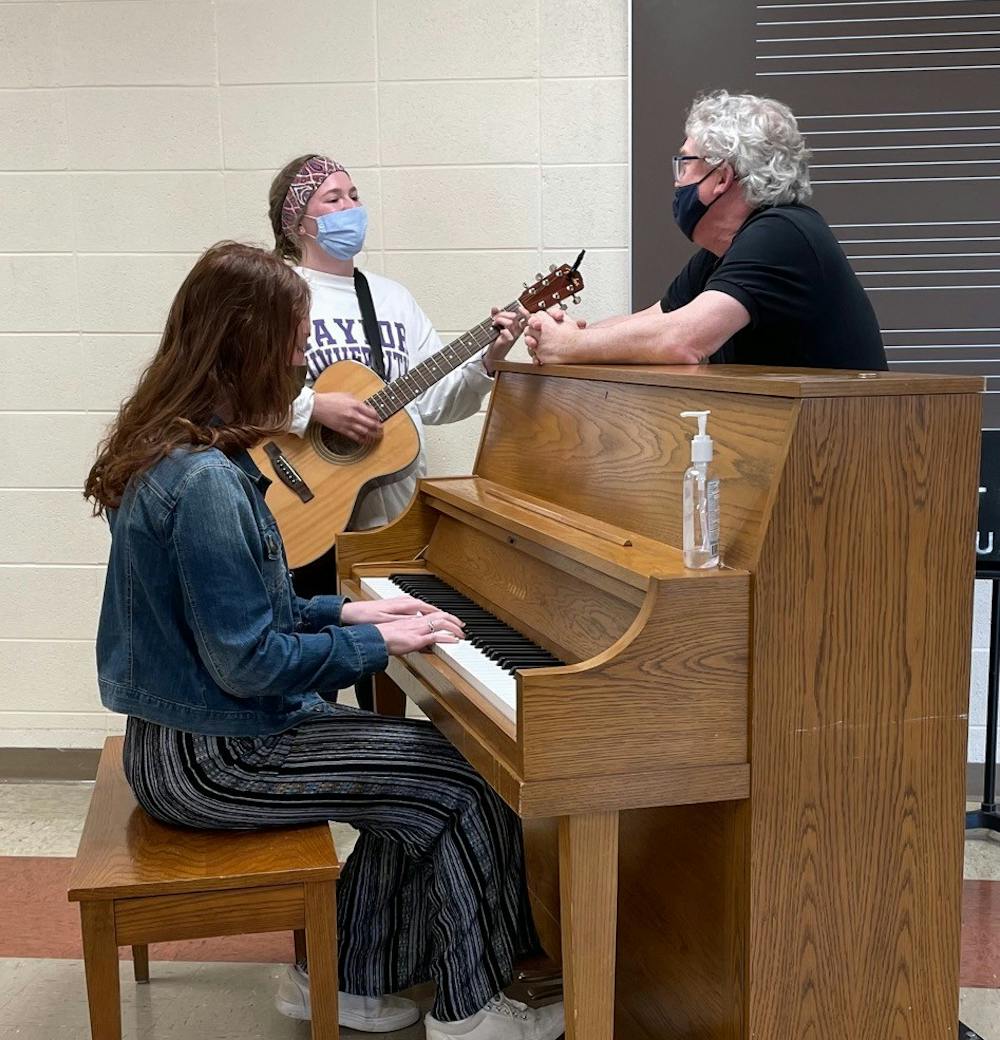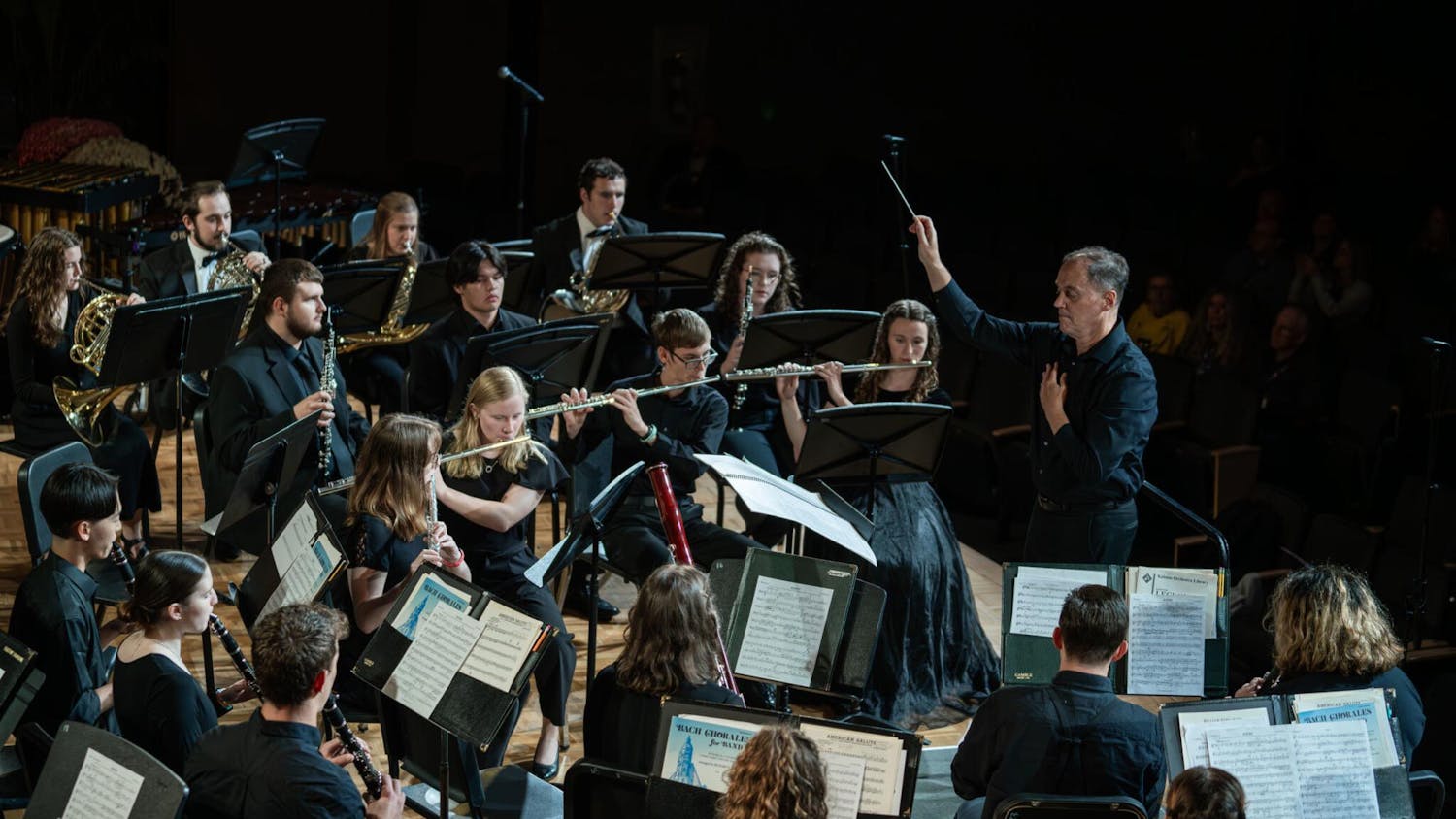What do you hear when you walk out of TU chapel? “Today, I just felt the presence of God!” or “Isn’t it great we sang (insert name of latest trending indie Christian song)?” or “I’m so glad I heard (insert name of beloved hymn)?” or “Why doesn’t the band choose songs that sound like (insert name of my home church)?” Whether comments are positive or negative, I’m glad our faculty, staff and students talk about the music in chapel.
Worship is more than music. Even more so, worship focuses on the audience of one, God, rather than our personal preferences. In my role as chapel band coach, I regularly ask Taylor chapel bands, “Who should sing in chapel? What should we sing?” In their better moments they answer like this:
All that has life and breath praise the Lord (Psalm 150:6), so everybody can praise!
Sing to the Lord a new song (Psalm 96:1), so we are all encouraged to sing!
Bring out treasures old and new from the storehouse (Matthew 13:52), so balance choices.
But chapel bands regularly wrestle with which songs to include. While Philippians 4:8 teaches much more than congregational singing, here we find qualities describing songs that can fill our hearts and minds with God’s peace: … fix your thoughts on what is true, and honorable, and right, and pure, and lovely, and admirable … (NLT).
Are the songs we sing in Taylor University Chapel true?
We should use texts that are theologically true. Singing songs that quote Scripture fulfills this idea. “The Blessing” gives us a way to sing Numbers 6:24-26 to each other. Other songs link scriptural ideas even if they don’t quote verbatim, such as reciting the story of God in “Great Is Thy Faithfulness” or “Living Hope.” But don’t be afraid to sing a song like “Lean Back,” which uses poetic language to invite us to consider God’s truth — even though not directly a biblical image (perhaps closest to Deuteronomy 33:27?) Chapel songs should be true — straight Scripture, paraphrased Scripture or related to Scripture. What else helps us decide what songs to sing?
Are the songs we sing honorable?
We should love the Lord our God with all our heart, soul, mind and strength, and we should love our neighbor as ourselves. Let’s show love by honoring God and our neighbor with our singing. What fascinating criteria! When a hymn lover graciously sings with gusto the latest mainstream worship song (which often prioritizes God’s felt presence,) we honor one who may be different than us. And when the flip happens — embracing spiritual formation through dense theological text — we also honor neighbors. When the lover of rhythmical intricacies slows down to chant a Taizé favorite, or the grandmother sings a song written by a current student, or anytime we move beyond our own preferences, our singing honors the image of God in our neighbor. What else could Philippians 4 teach us?
Are the songs right?
“Right” includes a moral dimension, but also speaks to the appropriateness, fit or aesthetics. As I look at the wonder of the construction of the book of Psalms, from the order of all 150 Psalms to the specific details of a particular line of poetry, I see evidence of God, who loves beauty. We don’t have to be posh to be moved by a particular turn of phrase, nor a philistine to notice particularly simplistic writing. And I’m not saying that words must be multi-syllabic or esoteric. But the words of “When I Survey the Wondrous Cross” or “So Shall I” moves me. These lyrics feed my soul in part because the poetry communicates a deeper truth that I long to find present in my life. Let’s use congregational songs that are “right.”
Are the songs we sing pure, lovely and admirable?
We could unpack these last three in greater detail, but I’ll limit myself to two comments. At Taylor University we prize a diversity of various theological traditions and have faculty, staff and students from many points of view within the evangelical tradition. Our congregational singing should be pure in that it aligns with God’s truth. But, if we are choosing songs well, then we also reflect the diversity taught in Scripture. What do we do with a phrase that makes us uncomfortable? If there is a song lyric that is more (insert theologically diverse viewpoint here) than you are comfortable with, I encourage you to keep in step with the Spirit (Galatians 5:25) and not sin against your conscience (1 Corinthians 8:12). After chapel, take time to talk with trusted people about that line, and deepen your conviction to sing God’s truth.
But what about the author?
I know some would demand that we cut off all ties with songs from a particular church, denomination or theological stance. As I guide the choices in congregational song, I do not find “guilt by association” a helpful criterium. One example: Should we sing the words of a known adulterer? What about God including Psalm 23 for Israelites to sing? David was an adulterer. I don’t want to limit genuine conversation about song selection. But I think a knee-jerk reaction to always avoid all songs from (insert group or author) unnecessarily limits us from applying criteria like Philippians 4:8 to specific songs.
I pray that the chapel ministry at Taylor University helps you grow and mature into all things, namely Christ. A discerning heart and mind, led by the Spirit, can make it clear to you what you should be singing. Thanks to the staff of The Echo for asking my opinion. As we sing together, let’s embrace a mutual unity in things necessary; in things not necessary, liberty; in all things, charity.
Dr. Clifton Davis wears many hats in life: father of a TU senior, piano player, worship leader, teacher, and chapel band coach. Wanna talk more? Email cldavis@taylor.edu to set up a time for a cuppa java, my treat!





